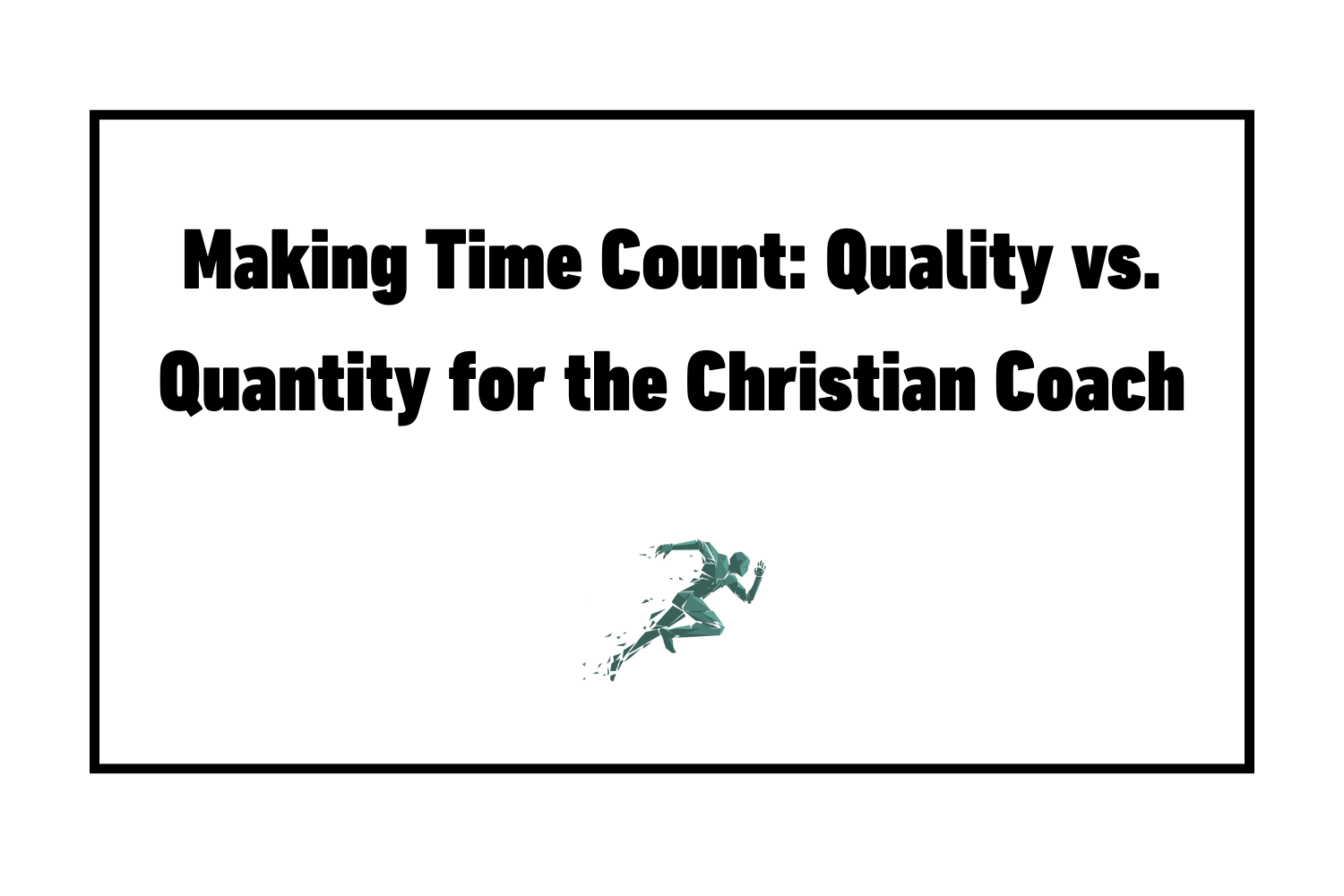Resources for Coaches
This athlete Bible study explores Proverbs 27:17 — a powerful athlete verse about how God uses relationships to build character, faith, and perseverance. Designed for athletes, coaches, and parents, this discipleship tool helps you reflect on how teammates, coaches, and even rivals sharpen you spiritually and athletically. Through guided questions and practical application, this verse for athletes reveals how competition and community can be part of God’s plan to shape you into the image of Christ. Whether used individually or in a group, this resource helps Christian athletes grow in humility, excellence, and faith on and off the field.
In Counterfeit Gods, Tim Keller defines an idol as anything that absorbs your heart and imagination more than God. For athletes, that description can hit close to home. Sports—though a good gift from God—can easily become the place we look for identity, meaning, and worth. In The Sports Idolatry Test, we explore ten honest questions designed to help you evaluate whether sport has crossed the line from passion to idolatry. Like the prophets of Baal in 1 Kings 18, the rich young ruler in Mark 10, and the man crying “Help my unbelief” in Mark 9, your answers may reveal where your hope truly rests—and invite you to reorient your worship toward the One who deserves it. Sports are meant to be a vehicle for worship, not a replacement for it. Take the test, see where you stand, and let God reclaim the throne of your heart.
A stand-alone resource created by Athletes in Action staff member and former college Tennis Coach, Chad Simpson, to help coaches reflect on five key areas of life so they can experience their best season yet.
Discover how Christian coaches can shift sports from idolatry to worship, guiding athletes to honor God, find identity in Christ, and compete for His glory.
From stadium anthems to personal playlists, music influences athletic culture, unites teams, shapes athletes, and inspires faith.
“Jesus Won” has become a rallying cry for Christian athletes, but the gospel story is bigger than just victory. Before the triumph came surrender, loss, and sacrifice. After all, Jesus is both Lion and Lamb. For athletes and coaches, it’s a reminder that true identity isn’t in the scoreboard but in Christ’s victory through the cross.
As the category of mental health continues to gain more momentum within the culture of sport, coaches need some semblance of competency with how to think about and speak this new language—because athletes seem to be more fluent in it with each passing day.
Sabbath is both a gift from God and a form of resistance to sport culture that teaches us we are only as worthy as we are productive.
In cultivating the habit in our own lives, and modeling it to our kids, we are “imaging” our Creator. We are making a conscious effort to look and act like him. And when we align our thoughts and actions with his character, it brings him glory—and it best positions our kids to grow and flex their own “patience muscles'' when the moment calls for it.
Praying scripture for your family will not solve the daily pressure and demands you face as a coach. It certainly won’t solve choosing between another meeting and making it home to enjoy dinner with your spouse (and kids). But it will, hopefully, give you a few action steps to choose your family while you are still on the field or in the office.
As a coach, your calendar often feels like it’s not your own. Between early practices, travel weekends, recruiting calls, film breakdowns, and game prep, the margins are razor-thin. And when you finally do get home, you're often running on fumes. You’re constantly pulled in a dozen directions. Sometimes, the people closest to you—like your spouse or kids—end up getting the least of you.
You can’t give everyone all your time, but you can give them your best time. And when you do, you reflect the heart of a God who is never too busy to be fully present with us.
Most of us understand there is some level of expectation to model Christ-like behavior to the athletes under our leadership. But what does it look like for us to grow in our walk with the Lord?
Coaches need to be discipled too.
Praying Scripture is one of the best ways we can pray for our players because the Bible expresses God’s will, God’s character, and God’s promises.
Sport culture often equates weakness with failure, but the biblical narrative offers Christian athletes and coaches a countercultural view: we are actually strongest when we embrace our weakness.
Prayer isn’t about being seen or celebrated. It’s a quiet act of faith. It’s not meant to be flashy or something to post on social media. When it comes to prayer, sometimes athletes and coaches just need a place to start.
Dude Perfect presents a potential model for what play and sports could look like on the New Earth.
Most coaches have a plan for X’s and O’s, but what about one for building a healthy team culture? What does it look like to gameplan for culture in the same way that we gameplan for championships? And what, if anything, can we learn about this from the ministry of Jesus?
Coaches must do the hard work of introspection. It honors God, creates space for reflection and growth, and helps us better serve those we are called to lead.
5 things for Christians to consider when athletes talk about God after the game
Yeah, Mahomes messed up. But his statement of remorse should be celebrated. The foundation of Christianity is not perfection, but forgiveness.
Paul does five things in Acts 17 that we would do well to take notice of and put into practice in our own efforts to share the Gospel in the context of sports.
Gratitude functions like any other muscle in our body—it gets stronger if we consistently give it attention and push it beyond its level of comfort. Conversely, if we fail to work it out, our ability to be thankful naturally atrophies. It needs to become a habit.
How can coaches be proactive in their approach to an athlete’s mental health instead of reactive? I have a resource that I think will help.
Discipleship takes place in the huddle. Here are 7 things I tried to impart to the kids I coached this year.
The best quotes from Keller’s book that I think will deeply resonate with anyone interested in integrating their faith with their vocational calling as a coach.
7 tips to help Christian athletes practice the presence of God in competition and practice.
10 of the most provocative quotes from Frank Deford's Religion in Sport series published almost 50 years ago.
Athletic trainers are positioned in one of the most strategic places in all of sports to be used by God in significant ways.
How have Christians changed over the past two thousand years with how we have thought about and engaged in sports? How have we stayed the same? And how did the historical context influence our thinking?






























A winning record, an influx of money, the best recruiting class, and consistent performance often define what it means to have an abundance in sport. But what if God has more in store for us than defining abundance by these standards?